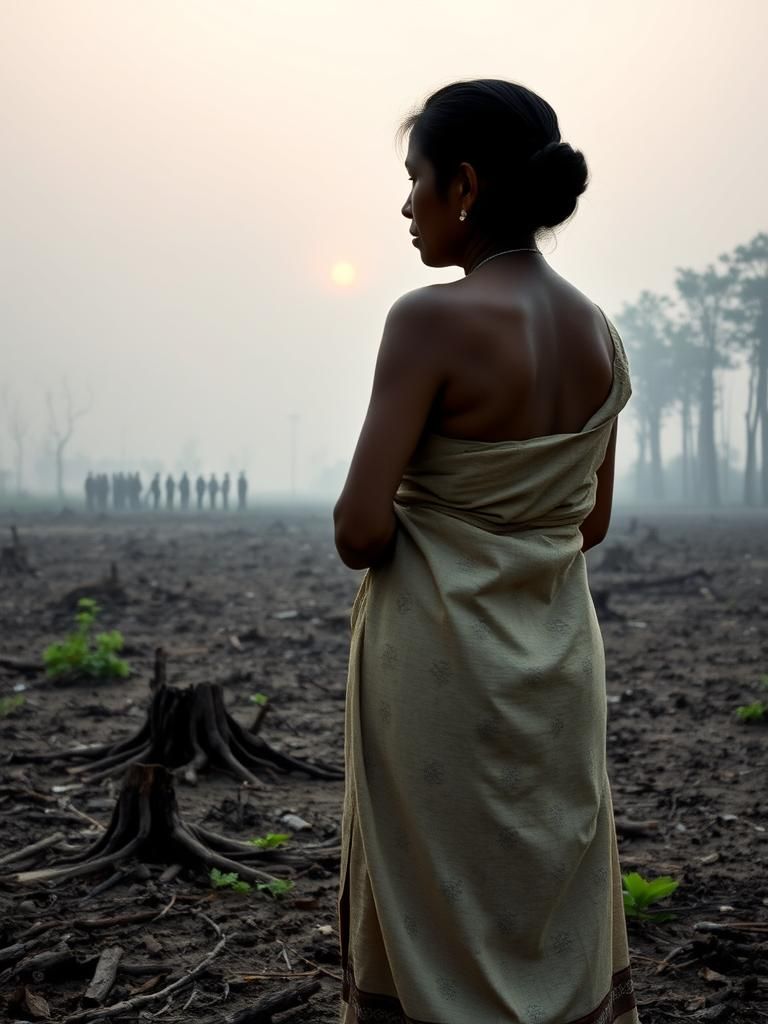A recent report has raised serious concerns about a Cambodian carbon offset project, alleging that it has led to the arrests and evictions of indigenous communities. The initiative, designed to combat deforestation and promote environmental sustainability, has reportedly displaced local residents who have lived on the land for generations. According to the findings, the project has been marred by human rights violations, including forced relocations and the criminalization of indigenous leaders. Critics argue that the scheme prioritizes profit over people, undermining its stated environmental goals. The allegations highlight the complex challenges of balancing conservation efforts with the rights and livelihoods of vulnerable populations.
Cambodian Offset Project Linked to Arrests and Evictions of Indigenous Communities
Overview of the Cambodian Offset Project
The Cambodian Offset Project was initiated as part of a broader effort to reduce carbon emissions by preserving forest areas. However, recent reports allege that the project has led to the arrests and evictions of indigenous people who have lived in these areas for generations. The project, which was intended to be a model for environmental conservation, has instead sparked controversy and raised concerns about human rights violations.
Allegations of Human Rights Violations
According to the report, the implementation of the Cambodian Offset Project has resulted in the forced displacement of indigenous communities. These communities claim that they were not consulted or compensated adequately before being removed from their ancestral lands. Additionally, there have been reports of arrests and intimidation tactics used against those who resisted the evictions. The allegations have drawn criticism from human rights organizations, which argue that the project prioritizes environmental goals over the rights of local inhabitants.
See Also Which Carbon Credits Should I Trust - as I Am Looking to Invest in a Long-Term Genuine Project
Which Carbon Credits Should I Trust - as I Am Looking to Invest in a Long-Term Genuine ProjectImpact on Indigenous Communities
The evictions have had a profound impact on the livelihoods and cultural heritage of the affected indigenous communities. Many families have lost access to their traditional farming and hunting grounds, leading to economic hardship. Furthermore, the displacement has disrupted their way of life, which is deeply connected to the land. The report highlights the need for inclusive and participatory approaches in conservation projects to ensure that the rights and needs of indigenous people are respected.
Authorities and project developers have defended the Cambodian Offset Project, stating that it is essential for combating climate change and protecting biodiversity. They argue that the evictions were carried out legally and that the affected communities were provided with alternative housing and compensation. However, critics argue that the compensation was insufficient and that the process lacked transparency. The controversy has prompted calls for an independent investigation into the project's implementation.
Global Implications of the Controversy
The controversy surrounding the Cambodian Offset Project has broader implications for global conservation efforts. It raises important questions about the balance between environmental protection and human rights. The case serves as a cautionary tale for other countries and organizations involved in similar projects, emphasizing the need for ethical and sustainable practices. The report calls for international standards to ensure that conservation initiatives do not come at the expense of vulnerable communities.
See Also Verra Biogas Powerplant Project- Can It Register for Carbon Credits if It Already Commissioned 2 Months Ago?
Verra Biogas Powerplant Project- Can It Register for Carbon Credits if It Already Commissioned 2 Months Ago?| Key Issue | Details |
|---|---|
| Arrests | Indigenous people resisting evictions were reportedly arrested. |
| Evictions | Forced displacement of communities from ancestral lands. |
| Compensation | Allegedly insufficient and lacking transparency. |
| Human Rights | Concerns over violations and lack of consultation. |
| Global Impact | Highlights the need for ethical conservation practices worldwide. |
Impact of the Cambodian Offset Project on Indigenous Communities
Background of the Cambodian Offset Project
The Cambodian Offset Project was initiated as part of a broader effort to reduce carbon emissions and promote environmental conservation. The project aimed to protect vast areas of forest by designating them as carbon offset zones, where companies could invest in conservation efforts to offset their carbon footprints. However, the implementation of this project has been marred by controversy, particularly concerning its impact on indigenous communities. Reports suggest that the project has led to the displacement and eviction of indigenous people from their ancestral lands, raising serious questions about the ethical implications of such initiatives.
Allegations of Human Rights Violations
A recent report has brought to light allegations of human rights violations associated with the Cambodian Offset Project. According to the report, indigenous communities have faced arrests, intimidation, and forced evictions as a result of the project's implementation. These actions have been carried out under the guise of environmental conservation, but critics argue that they have disproportionately affected the most vulnerable populations. The report highlights the need for greater transparency and accountability in the execution of such projects, emphasizing that the rights of indigenous people must be protected at all costs.
Impact on Indigenous Livelihoods
The eviction of indigenous communities from their lands has had a devastating impact on their livelihoods. Many of these communities rely on the forest for their sustenance, including hunting, gathering, and farming. The loss of access to these resources has left many indigenous people without a means to support themselves, leading to increased poverty and food insecurity. Furthermore, the disruption of their traditional way of life has caused significant cultural erosion, as indigenous communities are forced to abandon their customs and practices in the face of displacement.
See Also Solaxy Group Transforms Cooking in Rural Kenya With Clean Cookstove Initiative
Solaxy Group Transforms Cooking in Rural Kenya With Clean Cookstove InitiativeEnvironmental Concerns and Conservation Efforts
While the Cambodian Offset Project was designed to promote environmental conservation, critics argue that the methods used have been counterproductive. The eviction of indigenous communities has not only harmed the people but also the environment. Indigenous people have long been the stewards of the forest, using traditional knowledge to manage and protect these ecosystems. Their removal has led to a loss of this ecological wisdom, potentially undermining the very goals of the project. Additionally, the report suggests that the project has failed to adequately address the root causes of deforestation, such as illegal logging and land grabbing, raising questions about its overall effectiveness.
Calls for Justice and Policy Reform
In response to the allegations, there have been growing calls for justice and policy reform. Human rights organizations and environmental groups are urging the Cambodian government and international stakeholders to take immediate action to address the injustices faced by indigenous communities. This includes conducting thorough investigations into the allegations, providing compensation to those affected, and ensuring that future projects are designed with the participation and consent of indigenous people. The report underscores the importance of balancing environmental goals with human rights, advocating for a more inclusive and equitable approach to conservation.
Frequently Asked Questions (FAQ)
What is the Cambodian Offset Project mentioned in the report?
The Cambodian Offset Project refers to a conservation initiative aimed at reducing carbon emissions by protecting forests. However, a recent report alleges that this project has led to human rights violations, including the arrests and evictions of indigenous communities. The project, which was intended to promote environmental sustainability, has reportedly displaced local populations and disrupted their traditional ways of life.
Who are the indigenous people affected by this project?
The indigenous people affected by the Cambodian Offset Project are primarily members of local communities who have lived in the forest areas for generations. These communities rely on the forests for their livelihoods, cultural practices, and spiritual traditions. The report highlights that these groups have faced forced evictions and criminal charges as a result of the project's implementation, raising concerns about the violation of their land rights and human rights.
What allegations are made in the report about the project's impact?
The report alleges that the Cambodian Offset Project has caused significant harm to indigenous communities. Key allegations include illegal arrests, forced evictions, and the destruction of homes and farmland. Additionally, the report claims that the project has failed to provide adequate compensation or relocation support to affected families. These actions have reportedly led to widespread displacement and economic hardship among the indigenous population.
What are the broader implications of this report for conservation projects?
The report raises critical questions about the ethical and social implications of conservation projects like the Cambodian Offset Project. It underscores the need for such initiatives to balance environmental goals with the protection of human rights and indigenous land rights. The allegations highlight the risks of prioritizing carbon offsetting over the well-being of local communities, calling for greater transparency, accountability, and community involvement in future conservation efforts.
Leave a Reply


Our Recommended Articles